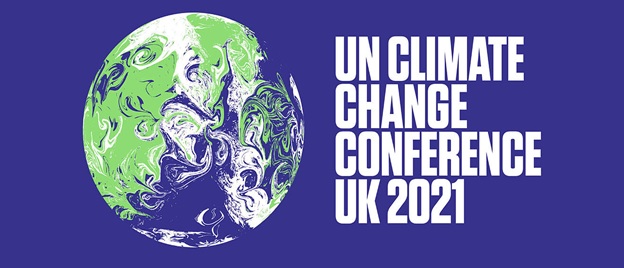COP26: Together for our planet
COP26 is the 2021 United Nations climate change conference. For nearly three decades the UN has been bringing together almost every country on earth for global climate summits – called COPs – which stands for ‘Conference of the Parties’ to the UN Framework Convention on Climate Change (UNFCCC). In that time climate change has gone from being a fringe issue to a global priority.

The annual meeting brings together the 197 members of the convention to take concerted action on climate change. The 2021 meeting was the 26th meeting – giving it the name COP26. At the meeting, country representatives discussed the issues such as climate change mitigation (the reduction of greenhouse gas emissions that cause the planet to warm), adaptation to irreversible environmental impacts caused by climate change, and financing to support developing countries in their efforts to move away from fossil fuels and become more resilient to the impacts of climate change.
Why is COP26 important?
This year’s COP is the most significant climate meeting since 2015, when the Paris Agreement was launched. Countries are now expected to agree on a set of robust guidelines for the implementation of the agreement. These include rules on how to measure and report each country’s carbon emissions, and how to increase ambition over time.
The conference is held annually but this year is critical because scientists say nations must make an immediate, sharp pivot away from fossil fuels if they hope to avoid the most catastrophic impacts of climate change.
The goal is to prevent the average global temperature from rising more than 1.5 degrees Celsius, or 2.7 degrees Fahrenheit, compared with levels before the Industrial Revolution. That’s the threshold beyond which scientists say the dangers of global warming — such as deadly heat waves, water shortages, crop failures and ecosystem collapse — grow immensely.
Goals of COP26
1. Secure global net zero by mid-century and keep 1.5 degrees within reach
2. Adapt to protect communities and natural habitats
3. Mobilise finance
4. Work together to deliver
PM Narendra Modi pledges net zero by 2070
Addressing the COP26 Summit, Prime Minister Narendra Modi made the pledge, the first time India has set a net zero target, at the Glasgow summit. Net zero, or becoming carbon neutral, means not adding to the amount of greenhouse gases in the atmosphere.
Prime Minister Narendra Modi said that India will achieve net-zero carbon emissions by 2070. He also said that India will reach its non-fossil energy capacity to 500 GW and also meet 50 per cent of its energy requirements from renewable energy by 2030. In addition, the country’s emissions intensity, or emissions per unit GDP, will be reduced by at least 45 per cent by the year 2030 from the 2005 levels. In its existing target, India had promised to reduce its emissions intensity by 33 to 35 per cent by that date.
WE ALL HAVE A PART TO PLAY TO TACKLE CLIMATE CHANGE